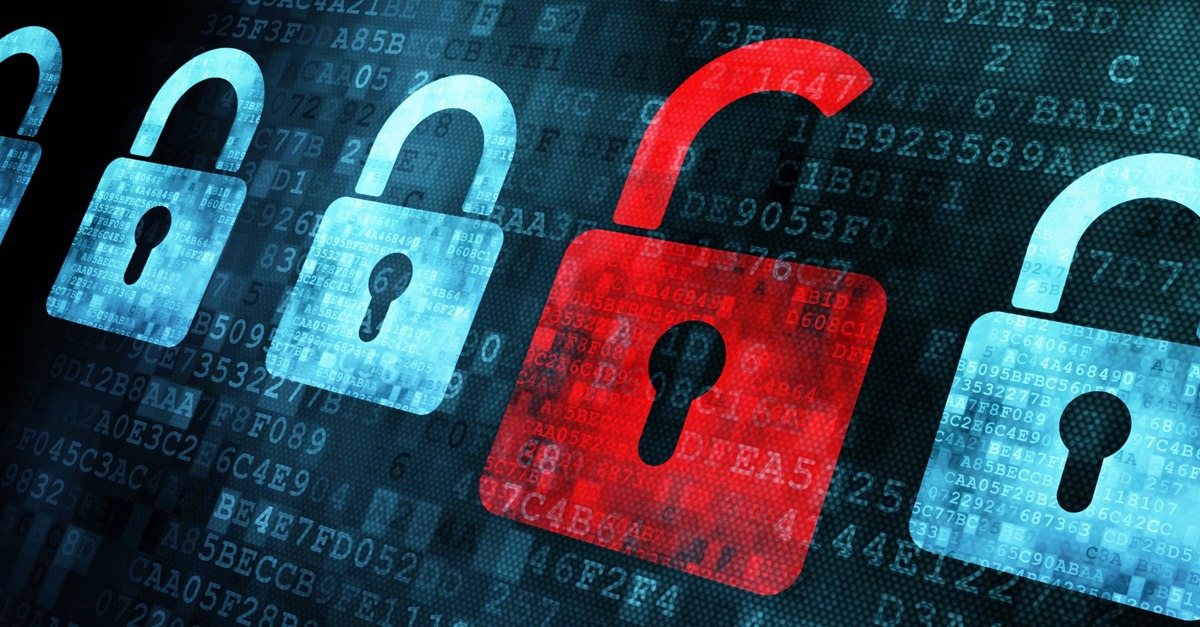Cybercrime and abuse in criminal investigation

To the much-used argument –markly radical and erroneously utilitarian– that without the use of certain “marginal” means of police investigation, currently magnified to unstoppable levels by technological development, judges would lack the necessary and sufficient evidence means to impart “true justice”, we would immediately have to oppose , that in a Rule of Law, necessarily and without any exception or valid excuse, one must act within the framework that the Law and the Constitution offer, and that all activities that go beyond them ignore, bankrupt , distorts or even abuses, would have to be illegal and consequently null and ineffective for the purpose of serving as procedural evidence of charge, without prejudice, of course is, to prosecute the authors and those responsible for such an abuse of power…
It is known that both our Supreme and Constitutional Courts and the ECtHR have solidly established the doctrine of prohibiting, under penalty of radical nullity, the so-called “prospective investigations”, known in the Anglo-Saxon doctrine as “fishing expeditions, as well as the so-called “general causes”, directed to the search, with the persecutory, non natas and, by itself, unknown although suspected criminal offenses by certain individuals, natural or legal, who are forcibly tried to prosecute for unspeakable reasons… generally political or economic…
A recent resolution (“Auto”) of the TS Criminal Chamber that, among others, for its clarity and dogmatic specificity is worth remembering, is that of July 1, 2014, appeal 20225/14, presentation by Judge D. Francisco Monderde Ferrer, also made up of the Chamber by Judges D. Juan Saavedra Ruiz; D. José Manuel Maza Martín and D. Miguel Colmenero Méndez de Luarca, in the case known as “of the chalet in Estepona of the President of the Community of Madrid”. It rejects the prosecution claim and specifies the reiterated jurisprudence of said Chamber (AATS 01.14.2015; 10.11 2013; 06.18.2012 and 05.31, by all) regarding that:
“the mere publication of information in the media cannot simply justify the opening of criminal proceedings for the investigation of facts if, additionally, it is not offered or provides some indication of its commission that can be qualified as accessible and rational.”
And the aforementioned resolution further clarifies:
“It should be reiterated that this Tribunal CANNOT request the initiation of a merely PROSPECTIVE investigation to try to find out if a person has committed, at some point, a crime in relation to the multitude of facts and events that are imputed to him; and this in the absence of any data or objective element that supports this possibility…”
It is true that we have entered fully and without return into the era of Cybercrime, and that the Internet and its affinities They have become a channel and cornerstone of countless frauds, scams, child pornography, prostitution, white slavery, illegal sale of weapons, drugs, etc. etc., using as instruments of criminal commission computers, tablets, mobile phones and other mass communication products, of unlimited and even unimaginable projection, reaching today those aerial surveillance gadgets called “drones”…
The central question is: How does the growing Cybercrime and its combat through modern police investigation technology fit in with the age-old constitutional doctrine of respect for the privacy of the person, their dignity, the secrecy of communications…guaranteed by article 18 of our Constitution and concordant provisions. Is personal privacy going to disappear for the sake of general security? Are there legal limits that are precisely delimited and effectively respected?
The subject does not logically have an easy answer and, in fact, there are many different ways to try to reconcile them; but there is also enormous uncertainty regarding the possible conflict between what, according to police and judicial criteria, is legal and admissible at a given moment and what which constitutes, at that very moment, the so-called social and public interest… Already, in fact, in the USA a new category of investigated has been created, who are neither suspected nor denounced, much less accused or accused…it is simply the so-called “person of interest”…someone about whom, in principle, it is “interesting” to know more…; but without specifying, neither much nor little, neither the why… nor the how much more… Of their own and following the path of existing advanced technology, almost all of them, in congruence with the recent revelations made by wikileaks, we are progressively and unstoppably becoming “person of interest”…unless we are so bland, anonymous and uninteresting that not even dogs bark at us when we walk by… since we don’t ride…
We note that, at least dialectically, there is a struggle, an open combat between the forces of “discovery” and the opposing forces of “confidentiality”. Recall the recent and highly publicized confrontation between the FBI and the Apple company in the case of the San Bernardino, California, massacre because the company refused to provide the secret codes or “passwords” of the iphones that the police force was not capable of decoding and required to know them peremptorily. There are also numerous applications for encrypting content that the forces of “discovery” are dedicated to unraveling. The only currently existing legal possibility is, ultimately, to resort to the decision-making protection of the judicial authority and argue that there is or is not “probable cause” or “indication of criminality” and request or oppose the claims for intervention of communications (in English: “warrant”). But, for their part and without prejudice to this, given the slowness and uncertainty of the judicial authorities, the police forces, much more expeditious and less legalistic, are already developing some so-called “robotic dogs” capable of entering confidential and encrypted information and discovering it, almost without insurmountable limits, and without having to wait for those cumbersome judicial authorizations, which also, as we know, require tedious temporary renewals…
A very acute problem of this cyber struggle to reveal the secrets of our personal interiority, is that precisely as a consequence of these abundant and indiscriminate searches for information , a large amount of data is revealed, of a personal and intimate nature, that has absolutely nothing to do with the alleged criminal activities, thus seriously and irrevocably affecting our rights to privacy and personal dignity, constitutionally protected.
Regarding the secrecy of communications, without prejudice to other equally important rulings, due to its proximity in time we would like to refer to the STS (2nd Chamber) of December 10 2015 (EDJ 2015/267288), presentation by Judge D. Antonio del Moral García, who underlines in his Fourth FD that:
“for interference in the right to secrecy of communications to be constitutionally legitimate, the Judge must verify the presence of verifiable evidence by a third party. Mere apodictic statements of suspicion are not enough. The judicial body must assess not only the seriousness and nature of the crimes that are intended to be investigated, but also the need to invade a fundamental right for that investigation. It is essential that you make a balanced judgment on the justifying level of the evidence that supports the suspicions.”
The Criminal Chamber itself refers to SSTC 49/1999 (EDJ 1999/6871), 299/2000 of December 11 (EDJ 2000/ 46394) and 136/2000 of May 29 (EDJ 2000/13812) as basic points of reference on such an important subject, underlining the need to specify the crime investigated and also the person to be investigated , making it clear that the subsequent success of the investigation is not an element that serves to validate what was born rotten at its roots, according to the Anglo-Saxon doctrine of “fruits of the poisoned tree”, < /em>because it is strictly an “ex ante” trial, as reflected in SSTC 165/2005 of June 20 (EDJ 2005/118926) and 259/2005 October 24.
Specifically regarding the concept of “Cybercrime”, and to the 2nd Chamber of the Supreme Court under the Convention on this matter of the Council of Europe signed in Budapest on November 23, 2001, and what is prescribed by LO 15/2003 of November 25, has been collecting and analyzing, for example, in its judgments 12.19.2011 (EDJ 2011/323988) and 04.03.2012 ( >EDJ 2012/65122), by all.
As recalled by the SSTS (2nd) of January 31 and no. 686 of July 29, both from 2013 (EDJ 2013/150031), and already from STS no. 155 of 02.28.2007 (EDJ 2007/15817), the Criminal Chamber has established a solid and coherent body of doctrine on, for example, the protocol to follow when a wiretap is requested as a means exceptional police investigation, which has come to complete the puny regulation that existed in art. 579 LEcrim., censured in various judgments of the ECtHR, among others in the case Prado Bugallo vs. Spain February 18, 2003; doctrine modified by the ECtHR itself in its inadmissibility order of September 25, 2006, case Abdukadar vs. Spain (EDJ 2006/497482). On this issue, I believe it is important to highlight, due to what has to be done daily in police investigations, the doctrine reiterated by the STS (2nd) no. 249 of May 20, 2008 (EDJ 2008/90719) regarding the fact that Judicial authorization by the police is NOT required to obtain the IMSI (“International Mobile Subscriber identity”); but IF, on the other hand, it will be necessary to obtain judicial authorization from the police to obtain from the Operating company the data that is in its files and files that would allow knowing the specific number of the user’s terminal and therefore, the name of its owner and registered address.
judicial control must be present in all phases of any measure that affects privacy and personal dignity, since It is an interference that by its very nature should always be exceptional and therefore the notes of sufficient motivation regarding its necessity and proportionality should be understandable to any average citizen. In more procedural words, it should be reasonably clear that the guarantees of due process have been respected…Precisely, on the necessary control of legality the doctrine reflected in the STS of March 22, 2012, which categorically underlines the rejection that pre-criminal and prospecting investigations must receive, which therefore must be banned from the body of evidence.
We do not want to conclude these reflections without mentioning, due to its singularity, the STC (1ª) of October 7, 2013 (EDJ/2013 182887), known as the Alcaliber case, which established the right of companies to intervene and control the corporate email of their employees, without this constituting an attack on their right to privacy or the secrecy of employee communications Article 18 of the Constitution.
This is a criminal matter, as we can see, endless and in full development by the vicissitudes of technological progress itself, and which is used by both cybercriminals and cyberpolice, < /em> and that will necessarily end up being resolved by the Cyberjudges…who are already in full training to be able to effectively and diligently face such a duel, which so seriously affects social security and tranquility.
Gustavo López-Muñoz y Larraz
Director of the Criminal Law Department JL Casajuana – Abogados
09/11/2016



















